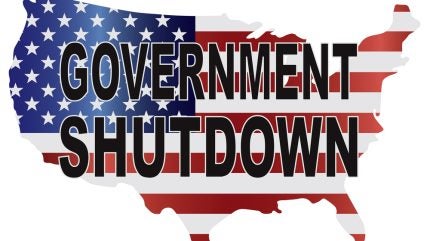
Retail industry leaders have called on the US Congress to swiftly end the ongoing federal government shutdown, warning that prolonged uncertainty could undermine consumer confidence ahead of the holiday season.
The National Retail Federation (NRF) highlighted the risks to both shoppers and retailers if federal operations remain stalled.

Discover B2B Marketing That Performs
Combine business intelligence and editorial excellence to reach engaged professionals across 36 leading media platforms.
Economic consequences of the shutdown
The government shutdown began on October 1, 2025, after Congress failed to approve funding for the 2026 fiscal year. Approximately 900,000 federal employees have been furloughed, with another 700,000 working without pay.
Essential services such as Medicare, Medicaid, and the Transportation Security Administration continue to operate, but many agencies, including the National Institutes of Health and the Women, Infants, and Children (WIC) program, are partially or fully suspended.
A White House analysis suggests that the US economy could lose $15 billion in GDP per week if the shutdown continues, with potential job losses of 43,000 over a month.
Consumer spending may drop by $30 billion during the same period, driven by both reduced federal worker income and wider economic effects.

US Tariffs are shifting - will you react or anticipate?
Don’t let policy changes catch you off guard. Stay proactive with real-time data and expert analysis.
By GlobalDataPolitical deadlock behind the closure
The shutdown stems from a standoff between Senate Democrats and Republicans over health care funding, particularly subsidies under the Affordable Care Act.
Democrats insist these subsidies must continue, while Republicans have blocked the extension, leaving millions at risk of sharply higher insurance premiums in 2026.
Lawmakers have highlighted the partisan divide, with some moderates calling for compromise.
Although critical operations such as weather forecasting and fossil fuel project approvals persist, funding lapses have disrupted many federal services, adding stress to federal staff and raising concerns about political manoeuvring.
Implications for retailers and consumers
The NRF warned that ongoing government disruption could affect consumer confidence and spending patterns during a crucial retail period. Suspension of federal services, including WIC and early childhood programmes, also has broader social and economic consequences.
Retailers are urging Congress to restore full government operations quickly to mitigate these risks and maintain stability in the marketplace.
As the shutdown continues, industry groups and consumer advocates are monitoring the situation closely, calling for an immediate resolution to avoid further economic and social disruptions.





